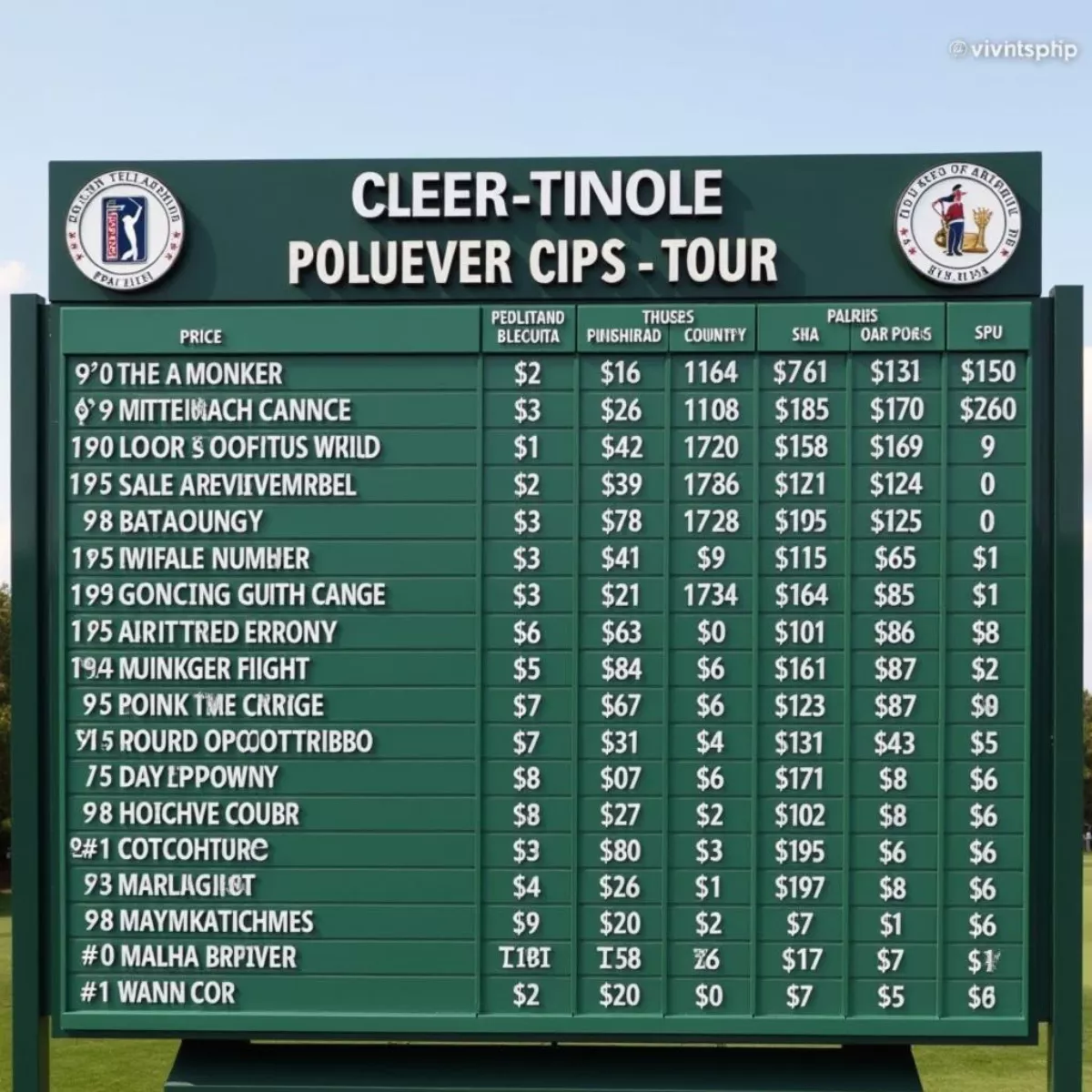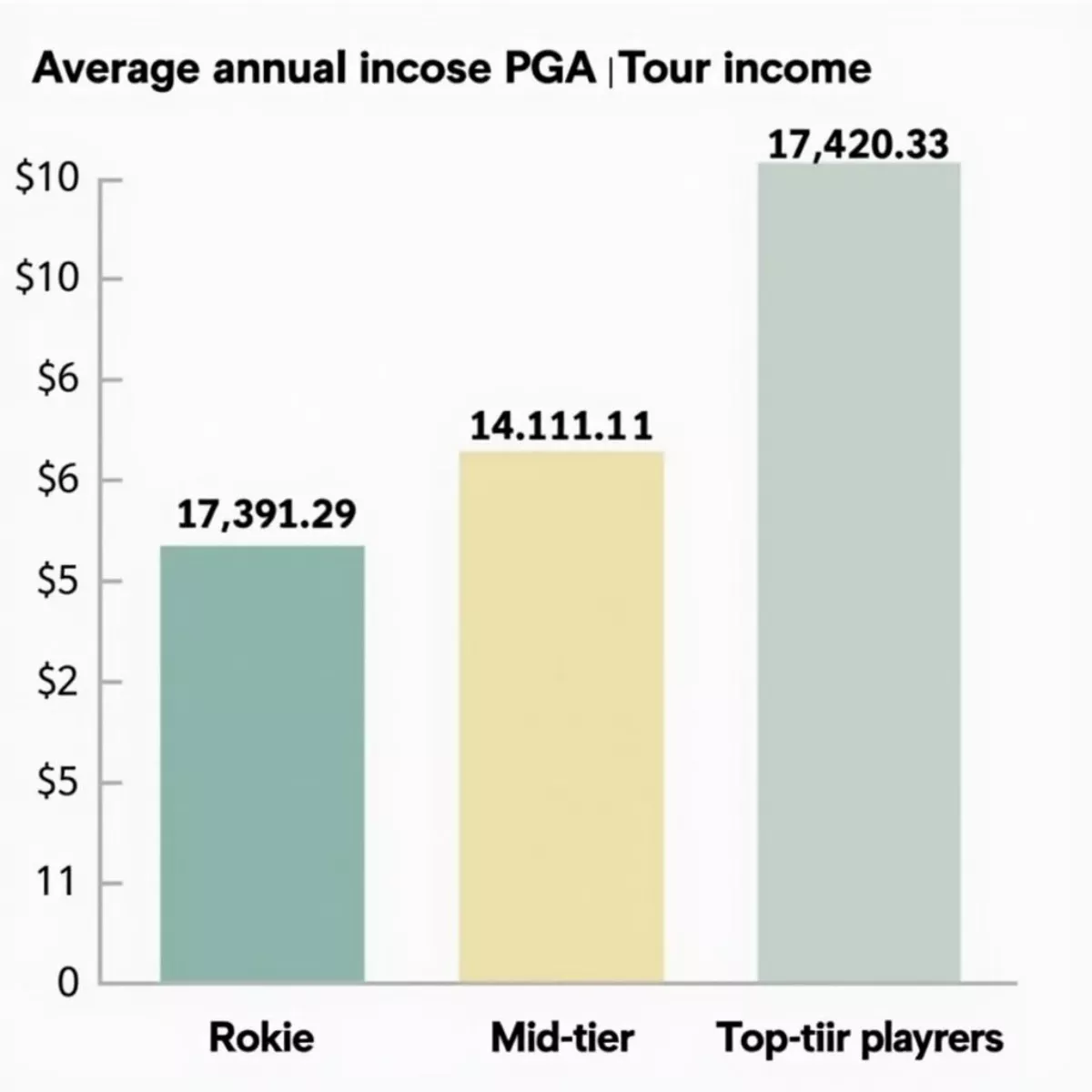Golf might seem like a leisurely sport played on sunny greens, but for PGA players, it’s a highly competitive profession that can yield significant financial rewards. But exactly how do these athletes earn their income? In this article, we’ll explore the various revenue streams available to PGA players, breaking down the complexities of their earnings to give you a comprehensive understanding of how they get paid.
The Breakdown of PGA Player Earnings
PGA players’ incomes can fluctuate significantly, depending on their skills, marketability, and the tournaments they participate in. Here’s a detailed look at the primary income sources for these professional golfers:
1. Prize Money
One of the most apparent forms of income for PGA players comes from prize money awarded at tournaments. Players earn a percentage based on their final standings. Here’s a brief overview of how it works:
- Win the tournament: The winner usually receives a large percentage of the total prize pool. For instance, if a tournament has a purse of $10 million, the winner might take home around $1.8 million to $2 million.
- Top 10 Finish: Players finishing in the top 10 also earn substantial payouts, though less than the winner. This can still range from hundreds of thousands to millions of dollars, depending on the tournament purse.
- Making the Cut: Even if players don’t finish in the top ranks, just making the cut allows them to earn some prize money.
 PGA Tour Prize Money Distribution
PGA Tour Prize Money Distribution
2. Sponsorship and Endorsements
While prize money is essential, sponsorships and endorsements often constitute a larger portion of a PGA player’s income. The appeal of a player’s image can attract major brands, leading to lucrative deals.
- Popular Brands: Well-known brands in golf equipment (like Titleist or Callaway), apparel (like Nike or Under Armour), and even automobile industries (like BMW or Mercedes-Benz) often seek to partner with top players.
- Endorsement Range: Endorsement deals can range from tens of thousands for lesser-known players to millions for stars like Tiger Woods and Rory McIlroy.
3. Appearance Fees
Star players can earn substantial appearance fees for participating in events, especially if they’re not included in the regular tour schedule. This is particularly common in exhibition matches or non-PGA Tour events.
- Exhibition Matches & Special Events: Players can earn anywhere from $25,000 to several million dollars for simply showing up and playing a few holes.
 PGA Player at Exhibition Match
PGA Player at Exhibition Match
4. Media and Television Deals
Television exposure has provided new opportunities for PGA players to monetize their skills and personalities. Some players manage to land media contracts, which can contribute to their overall income.
- Commentating and Analysis: Retired golfers often commentate for sports networks, offering insight into the game and earning additional income.
5. Merchandise Sales
Merchandise and golf gear can generate additional income for PGA players as well.
- Personal Brands: Players like Phil Mickelson have successful lines of merchandise that include clothing, equipment, and accessories.
- Royalty Deals: Players often earn royalties from merchandise sold under their name, adding to their income.
6. Investments and Other Ventures
Many golfers also engage in investments and business ventures to diversify their income.
- Real Estate Investments: Many professional athletes, including golfers, invest in real estate, leveraging their earnings for long-term financial security.
- Golf Course Ownership: Some PGA players, after years on Tour, decide to own and operate golf courses, combining their passion with business acumen.
| Income Source | Description | Income Potential |
|---|---|---|
| Prize Money | Earnings from tournament finishes. | Varies by performance |
| Sponsorships | Endorsements from brands in and out of the golf industry. | Thousands to millions |
| Appearance Fees | Fees paid for participating in exhibition matches. | $25,000 to millions |
| Media Contracts | Income from commentary and analysis roles. | Varies |
| Merchandise Sales | Earnings from sold branded merchandise. | Royalties vary |
| Investments | Money earned through investments and business ventures. | Varies greatly |
How Much Do PGA Players Really Make?
While many PGA players earn money from the sources mentioned above, not all players earn the same. Here are some key insights:
- Rookie Players: Many beginners make an average of $30,000-$100,000 in their first year, not always covering their travel expenses.
- Mid-Tier Players: Competitors who consistently finish in the mid-tiers can earn between $500,000 to $2 million annually.
- Top Players: The top-tier players like Tiger Woods and Phil Mickelson can make in excess of $60 million annually, combining prize money, endorsements, and more.
 PGA Player Income Comparison
PGA Player Income Comparison
Player Financial Highlights
- Tiger Woods: Estimated earnings over his career exceeding $1.5 billion, with a bulk coming from endorsements.
- Phil Mickelson: Over $90 million in career earnings from PGA Prize Money alone, with endorsements adding several million more annually.
Key Takeaways
- PGA Players have diverse income streams, including prize money, sponsorships, and appearance fees.
- The amount earned varies significantly based on performance, marketability, and experience.
- Endorsements and sponsorships can overshadow prize money in terms of total earnings.
- Smart financial management and investment choices play a pivotal role in a professional golfer’s financial success.
Frequently Asked Questions
1. How is prize money distributed among PGA players?
Prize money is usually awarded based on player standings, with the top player receiving the largest share.
2. Do all PGA players have sponsors?
Not all players have sponsorships, as these are often reserved for those with higher profiles and marketability.
3. Can golfers earn money outside of playing tournaments?
Yes, golfers can earn significant income through media appearances, merchandise sales, and investments.
4. What determines a player’s marketability?
A player’s personality, performance, presence on social media, and public perception largely influence their marketability.
5. How do rookie golfers get started?
Rookie golfers earn through smaller tournaments and often rely on sponsorships to support their careers initially.
6. What are appearance fees?
Appearance fees are payments made to players to participate in events, regardless of tournament results.
7. Do all PGA players participate in the same tournaments?
No, participation depends on factors like tour card status, performance, and invitations to specific events.
8. What happens if a player doesn’t make the cut?
Players who do not make the cut generally do not earn any prize money, though some can receive minimal fees for participation.
9. How do endorsements work for golfers?
Endorsements involve contracts where brands pay players to promote their products, typically tied to image rights.
10. Is it easy for a new golfer to get sponsorships?
It can be challenging as sponsorships typically require a proven track record and a growing fanbase.
In conclusion, understanding how PGA players earn their incomes gives insight into the complexities of professional golf. Whether it be from prize payouts, sponsorships, or business ventures, the financial landscape for these athletes is multifaceted and often lucrative. This guide offers a solid foundation on which aspiring golfers and golf enthusiasts can build a greater appreciation for the economics of the sport.